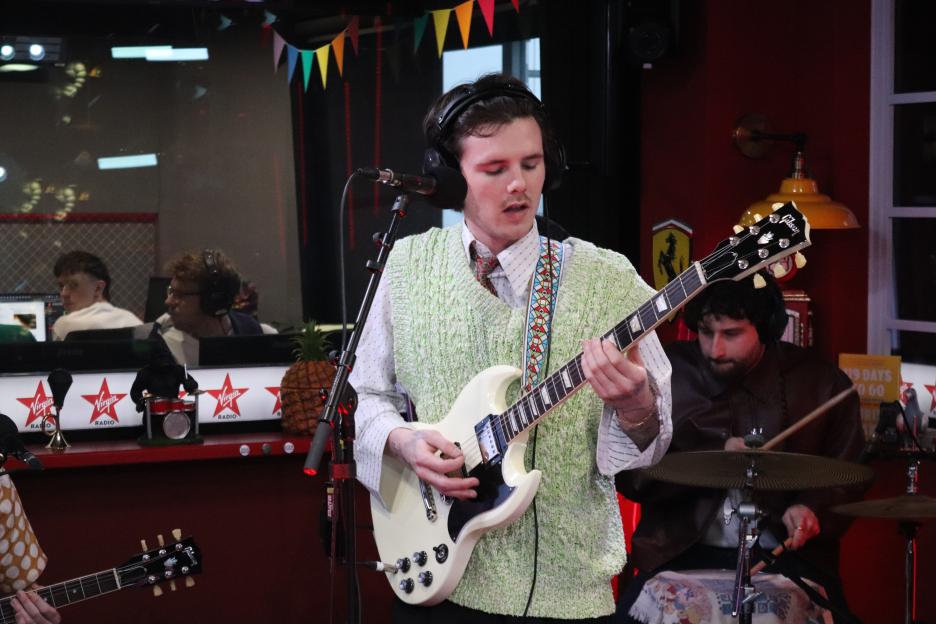RUSSELL Watson revealed he briefly considered ending his life after being diagnosed with his first brain tumour.
The opera singer, 58, was recording an album in Los Angeles in 2006 when he paid a visit to Cedars-Sinai Hospital after suffering excruciating headaches.
 He revealed he contemplated jumping from a balcony after his first diagnosis in 2006
He revealed he contemplated jumping from a balcony after his first diagnosis in 2006
Russell had been experiencing them for months and on his flight to the States was in so much pain he was convinced he was going to die.
An MRI scan revealed a pituitary tumour – later found to be benign – the size of two golf balls that required emergency surgery.
Speaking on Kaye Adams‘ How To Be 60 podcast , he said: “My whole world came crashing down and the pain got worse – everything was exacerbated with the news of what he’d just told me.
“I was staying in a hotel in Beverly Hills and I was on the 8th floor and it was the first time I’d ever felt this way.
“I can’t explain the pain – I’ve never felt anything like it before or since – it was like a dagger being pressed into the centre of my head and twisted.
“It was excruciating and for one moment I stood on my hotel balcony. I literally just thought: ‘f**k this, I’ve had enough.’ And I felt like jumping.”
Fortunately, his mind drifted to his family and he didn’t go through with it.
He continued: “And then the thought of the children entered my head and they were little girls then – they’re not going to manage without me. Back in the room. Went and lay on the bed, rinsed my face with cold water and took the pain on.”
Russell branded himself an “idiot” for staying in LA to complete his record before returning to the UK for a five-hour surgery at St George’s Hospital, London.
The classical singer was determined to finish the album that he felt at the time might be his legacy record were he to die.
The impacts of the tumour , which was removed through his nose, are still felt to this day.
Russell explained: “I’ll be taking a lifetime of replacement drugs and hormones for as long as I’m here, predominantly to my pituitary gland which was pretty much decimated, so there’s a constant reminder.
“I have to take daily injections and tablets, particularly hydrocortisone, which I was told if I didn’t take for a specific amount of time I wouldn’t be here anymore. It’s the lifesaving drug for me and growth hormones.”
In 2007, disaster struck again when a regrowth of the tumour stopped Russell in his tracks while he was making another album.
Help for mental health
If you, or anyone you know, needs help dealing with mental health problems, the following organisations provide support.
The following are free to contact and confidential:
- Samaritans, www.samaritans.org , 116 123
- CALM (the leading movement against suicide in men) www.thecalmzone.net , 0800 585 858
- Papyrus (prevention of young suicide) www.papyrus-uk.org , 0800 068 41 41
- Shout (for support of all mental health) www.giveusashout.org/get-help/ , text 85258 to start a conversation
Mind, www.mind.org , provide information about types of mental health problems and where to get help for them. Call the infoline on 0300 123 3393 (UK landline calls are charged at local rates, and charges from mobile phones will vary).
YoungMinds run a free, confidential parents helpline on 0808 802 5544 for parents or carers worried about how a child or young person is feeling or behaving. The website has a chat option too.
Rethink Mental Illness, www.rethink.org , gives advice and information service offers practical advice on a wide range of topics such as The Mental Health Act, social care, welfare benefits, and carers rights. Use its website or call 0300 5000 927 (calls are charged at your local rate).
Heads Together, www.headstogether.org.uk , is the a mental health initiative spearheaded by The Royal Foundation of The Prince and Princess of Wales.
Once again he needed emergency surgery, this time at Alexandra Hospital, Greater Manchester. It was followed by radiotherapy as part of his rehabilitation.
Last November, Russell broke down in tears on The One Show when he received a video message from the consultant who had looked after him.
Mr Lackett told him: “17 years on from that brave decision to have the surgery and look what a glittering career you’ve had in-between.
“I can’t tell you how much the team and I were so proud to watch you and your progress after that awful night when you were taken into hospital as an emergency.”
Emotional Russell responded by telling the hosts Alex Jones and Roman Kemp : “Oh deary me, what a man. And so lovely as well, so down to earth. Just a beautiful human being.
“I will be eternally grateful to him.”
 The classical singer was determined to finish his album after his first tumor was found
The classical singer was determined to finish his album after his first tumor was found Symptoms of a benign brain tumour
A benign brain tumour is a mass of cells that grows relatively slowly in the brain.
Benign means it in not cancerous.
Non-cancerous brain tumours tend to stay in one place and do not spread.
Some slow-growing tumours may not cause any symptoms at first.
When symptoms occur, it’s because the tumour is putting pressure on the brain and preventing a specific area of the brain from working properly.
As the tumour grows and increases pressure in the skull, you might experience:
- New, persistent headaches that are sometimes worse in the morning or when bending over or coughing
- Feeling sick all the time
- Drowsiness
- Vision problems, such as blurred or double vision, loss of part of your visual field and temporary vision loss
- Epileptic seizures that may affect the whole body, or you may just have a twitch in one area
See a GP if you develop any of these symptoms.
They’ll examine you and ask about your symptoms.
If they suspect you may have a tumour or are not sure what’s causing your symptoms, they may refer you to a brain and nerve specialist for further investigation.
Source: NHS







